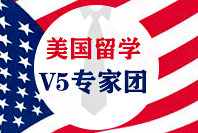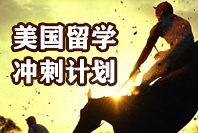我的爷爷(Ye-Ye)总是戴着一顶红色棒球帽。我想他喜欢鲜艳的颜色,就像他自己一样。
七年前,爷爷从中国来看望我们时,他带着他的红帽子,在那六个月来每天晚上,它都挂在我家楼梯栏杆上,等待第二天早上忠实地戴在爷爷的头上。
他到处戴着帽子:在房子周围,他用帽子表演魔术,逗我弟弟笑;去街角的商店,他给我买了冰棒,然后用帽子擦去我脖子上的夏日汗珠。今天,每当我看到一顶红帽子,我就会想起我的爷爷和他的棒球帽,我笑了。
Ye Ye在中文里是“祖父”的意思。我的爷爷是一个简单、普通的人,不富有,也不“成功”——但他是我最大的灵感来源,我崇拜他。
在我认识的所有人中,爷爷经历苦难最多的人;而在我认识的所有人中,爷爷也是最快乐的。在我看来,这两个方面可以在一个人身上共存真是了不起。
爷爷是个孤儿。他的父母在他六岁之前就去世了,这使他和他的弟弟无家可归。
当其他孩子聚集在学校的炉灶旁看书时,爷爷和他的兄弟冒着严寒沿着铁轨行走,捡拾煤渣出售。
当其他孩子跑回家找慈爱的父母时,爷爷和他的兄弟在街上寻找睡觉的地方。八年后,爷爷开始独自行动,因为他的弟弟死了。
爷爷设法活了下来,同时自学了读、写和算术。“生活是一种福分(blessing),”他微笑着告诉身边的人。
几年后,爷爷去戈壁沙漠工作,他和他的同事们在那里每天工作12小时。沙漠大风无情;它会在半夜吹走走他们的帐篷,让他们第二天早上一无所有。每年,恶劣的天气都夺去了一些同事的生命。
八年后,爷爷被调回他的妻子卧病在床的城市。在每天12小时的工作日结束时,爷爷回家照顾了生病的妻子和三个年幼的孩子。他和孩子们坐在一起,告诉他们广阔的、星光灿烂的沙漠天空和神秘的沙漠生活。“生活是一种福分,”他微笑着告诉他们。
但生活并不容易;当时家里几乎没有足够的钱让这个家庭免于挨饿。然而,我父亲和他的姐妹们喜欢和爷爷一起去市场。他会给他们买一些他们母亲永远不会让他们沉迷其中的小奢侈品:两分钱一小袋的瓜子,三分钱一块的糖。尽管是奢侈品,爷爷还是毫不犹豫地买下了。任何能让孩子们脸上带着微笑、脚步轻快的东西都是无价的。
爷爷今天仍然去市场。在78岁的时候,他每周骑几公里的自行车去买几袋新鲜的水果和蔬菜,然后骑车回家与邻居分享。他种了一小块草莓和一棵杏树。
当水果成熟时,他打开门,邀请所有的孩子进来采摘和吃。他对附近的每个孩子都很友好。我一直认为我很理智,很有自知之明。但是,没有什么能让我像在了解了爷爷所遭受的苦难过去和他这些年来一直保持的乐观态度后那样震惊。
我回想起我心烦意乱的时候。我妈妈忘了去汽车站接我;在作业到期前一天,我的电脑死机了。这些事情看起来如此琐碎和幼稚,我为自己深感羞愧。
现在,每当我遇到一个看似无法逾越的困难时,我就会想起爷爷;我看到他戴着红色棒球帽,朝我微笑。他的微笑像一股清水,把我从悲伤中唤醒,让我想起我的烦恼是多么微不足道,生活是多么慷慨。
今天我把一顶红色棒球帽放在家里的栏杆柱上,爷爷曾每天晚上都把它放在那里。每当我看到帽子,我都会想起我的爷爷,他戴着红色棒球帽微笑着,我也微笑着。是的,是的。生活是一种福分。
英文原文
My Ye-Ye always wears a red baseball cap. I think he likes the vivid color—bright and sanguine, like himself. When Ye-Ye came from China to visit us seven years ago, he brought his red cap with him and every night for six months, it sat on the stairway railing post of my house, waiting to be loyally placed back on Ye-Ye’s head the next morning. He wore the cap everywhere: around the house, where he performed magic tricks with it to make my little brother laugh; to the corner store, where he bought me popsicles before using his hat to wipe the beads of summer sweat off my neck. Today whenever I see a red hat, I think of my Ye-Ye and his baseball cap, and I smile.
Ye-Ye is the Mandarin word for “grandfather.” My Ye-Ye is a simple, ordinary person—not rich, not “successful”—but he is my greatest source of inspiration and I idolize him. Of all the people I know, Ye-Ye has encountered the most hardship and of all the people I know, Ye-Ye is the most joyful. That these two aspects can coexist in one individual is, in my mind, truly remarkable.
Ye-Ye was an orphan. Both his parents died before he was six years old, leaving him and his older brother with no home and no family. When other children gathered to read around stoves at school, Ye-Ye and his brother walked in the bitter cold along railroad tracks, looking for used coal to sell. When other children ran home to loving parents, Ye-Ye and his brother walked along the streets looking for somewhere to sleep. Eight years later, Ye-Ye walked alone—his brother was dead.
Ye-Ye managed to survive, and in the meanwhile taught himself to read, write, and do arithmetic. Life was a blessing, he told those around him with a smile.
Years later, Ye-Ye’s job sent him to the Gobi Desert, where he and his fellow workers labored for twelve hours a day. The desert wind was merciless; it would snatch their tent in the middle of the night and leave them without supply the next morning. Every year, harsh weather took the lives of some fellow workers.
After eight years, Ye-Ye was transferred back to the city where his wife lay sick in bed. At the end of a twelve-hour workday, Ye-Ye took care of his sick wife and three young children. He sat with the children and told them about the wide, starry desert sky and mysterious desert lives. Life was a blessing, he told them with a smile.
But life was not easy; there was barely enough money to keep the family from starving. Yet, my dad and his sisters loved going with Ye-Ye to the market. He would buy them little luxuries that their mother would never indulge them in: a small bag of sunflower seeds for two cents, a candy each for three cents. Luxuries as they were, Ye-Ye bought them without hesitation. Anything that could put a smile on the children’s faces and a skip in their steps was priceless.
Ye-Ye still goes to the market today. At the age of seventy-eight, he bikes several kilometers each week to buy bags of fresh fruits and vegetables, and then bikes home to share them with his neighbors. He keeps a small patch of strawberries and an apricot tree. When the fruit is ripe, he opens his gate and invites all the children in to pick and eat. He is Ye-Ye to every child in the neighborhood.
I had always thought that I was sensible and self-aware. But nothing has made me stare as hard in the mirror as I did after learning about the cruel past that Ye-Ye had suffered and the cheerful attitude he had kept throughout those years. I thought back to all the times when I had gotten upset. My mom forgot to pick me up from the bus station. My computer crashed the day before an assignment was due. They seemed so trivial and childish, and I felt deeply ashamed of myself.
Now, whenever I encounter an obstacle that seems overwhelming, I think of Ye-Ye; I see him in his red baseball cap, smiling at me. Like a splash of cool water, his smile rouses me from grief, and reminds me how trivial my worries are and how generous life has been. Today I keep a red baseball cap at the railing post at home where Ye-Ye used to put his every night. Whenever I see the cap, I think of my Ye-Ye, smiling in his red baseball cap, and I smile. Yes, Ye-Ye. Life is a blessing.
*(作者:Yueming 中文版为《留学字典》翻译)







